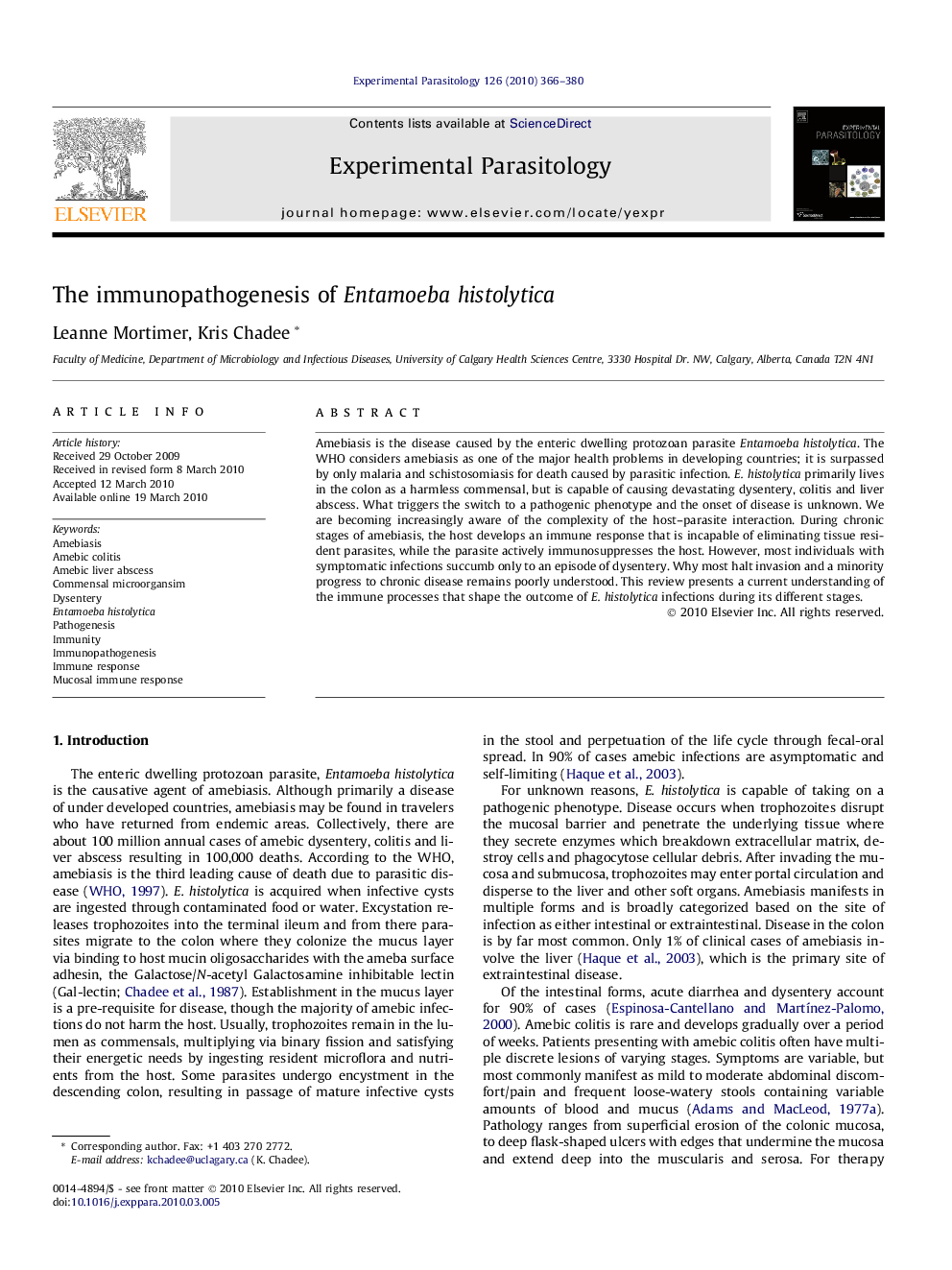| Article ID | Journal | Published Year | Pages | File Type |
|---|---|---|---|---|
| 6292051 | Experimental Parasitology | 2010 | 15 Pages |
Abstract
Amebiasis is the disease caused by the enteric dwelling protozoan parasite Entamoeba histolytica. The WHO considers amebiasis as one of the major health problems in developing countries; it is surpassed by only malaria and schistosomiasis for death caused by parasitic infection. E. histolytica primarily lives in the colon as a harmless commensal, but is capable of causing devastating dysentery, colitis and liver abscess. What triggers the switch to a pathogenic phenotype and the onset of disease is unknown. We are becoming increasingly aware of the complexity of the host-parasite interaction. During chronic stages of amebiasis, the host develops an immune response that is incapable of eliminating tissue resident parasites, while the parasite actively immunosuppresses the host. However, most individuals with symptomatic infections succumb only to an episode of dysentery. Why most halt invasion and a minority progress to chronic disease remains poorly understood. This review presents a current understanding of the immune processes that shape the outcome of E. histolytica infections during its different stages.
Keywords
Related Topics
Life Sciences
Immunology and Microbiology
Parasitology
Authors
Leanne Mortimer, Kris Chadee,
